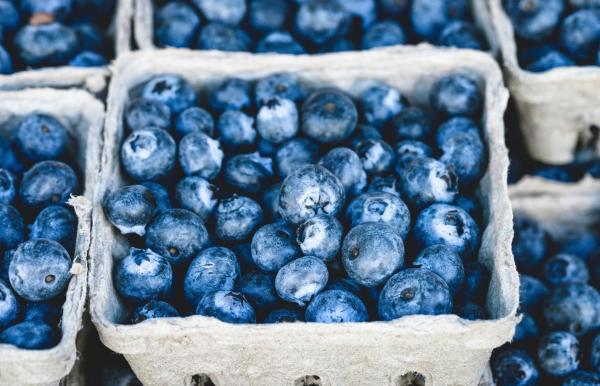Last November CNBC published an article by Harvard nutritional psychiatrist Uma Naidoo urging readers to “avoid these five foods to stay focused and sharp.” If that author and headline ring a bell, it's because ACSH published two articles critiquing Naidoo's thesis. Our primary complaint was that avoiding certain foods, while perhaps a wise choice for some people, probably won't do much to boost or even preserve your brain health as you age. The evidence Naidoo cited fell far short of her assertions.
Our favorite nutritional psychiatrist is back this week with the mirror image of her previous conclusion: “A Harvard nutritionist shares the No. 1 food she eats every morning to help her brain ‘stay sharp’ and ‘age well.’” Eating just half to one cup of blueberries per day, she claimed, can cut your "risk of developing neurological problems and improve your mental health.”
Blueberries are pretty scrumptious, and relative to a bag of Doritos they're a smart snack choice. There is nonetheless little evidence to suggest that upping your blueberry intake will do anything to improve your brain health.

Let's look at one of the studies Naidoo pointed to as evidence.
“Blueberries are packed with flavonoids, which are plant compounds that offer a variety of health benefits. Studies have found it can lower your risk for dementia.”
The paper she cited in support of this claim was based on data from the Framingham Heart Study and merely found an association between eating foods containing flavonoids and lower dementia risk. [1] Out of 2,801 participants, 193 developed Alzheimer's disease and related dementias (ADRD); 158 were classified as Alzheimer's disease. Individuals with the highest intake of total flavonoids were roughly 40 percent less likely to develop ADRD, but none of the associations for total flavonoid consumption were statistically significant, according to table 3 (see below).

It makes no sense to generalize from these inconclusive results. Then there's this crucial detail: participants with the highest total flavonoid consumption were more
“… educated, physically active, consumed more calories, had a better overall diet quality; and higher consumption of ω-3 fatty acids (EPA and DHA), lutein and zeaxanthin, and multivitamin and mineral supplements. They also smoked less and had lower BMI and prevalence of hypercholesterolemia.”
In other words, people who maintained overall healthier habits fared a little better over the long term. Hardly a shocking result, though not good evidence that eating blueberries will help you remember your kids' names in your golden years.
Gaps in the data
Like most epidemiological studies, the data here were self-reported from food frequency questionnaires (FFQs). This is generally an unreliable data source since people don't accurately report what they eat or drink. Participants in the Framingham study were asked to record their daily consumption of 130 foods and report the details during an annual exam:
“... the FFQs were mailed to free-living participants who were given instructions to complete the questionnaire recording the frequency of foods consumed over the past 12 mo … The FFQ is comprised of a list of 126 foods with a standard serving size and a selection of 9 frequency categories ranging from 'never or
The problem could have been amplified in this case because the researchers had to rely on a cohort with an elevated dementia risk. Individuals who develop the disease often “display cognitive deficits years before a clinical diagnosis is made,” the authors noted. Dietary data from some participants actually had to be excluded from the analysis either because they quit updating their FFQs or were diagnosed with dementia. The authors also explained that
A direct evaluation of the validity of flavonoid intake from the FFQ used in the current study has not been performed.
But that's not all. “Our analyses were also limited in that we could not account for ... cognitive status at young ages and depression status,” the paper's "discussion" section acknowledged. That means the authors didn't know anything about the participants' mental health before the age of 50. Depression is thought to be a risk factor for dementia, so this introduces further uncertainty into the results.
Finally, the authors noted that “The 5 earlier prospective observational studies that have examined the relation between flavonoid intake and ADRD risk revealed mixed results.” All we have, then, are six epidemiological studies of varying quality that have yielded inconsistent conclusions.
So, should you eat blueberries? Knock yourself out. Just don't consume them under the delusion that you're doing your brain a great service.




